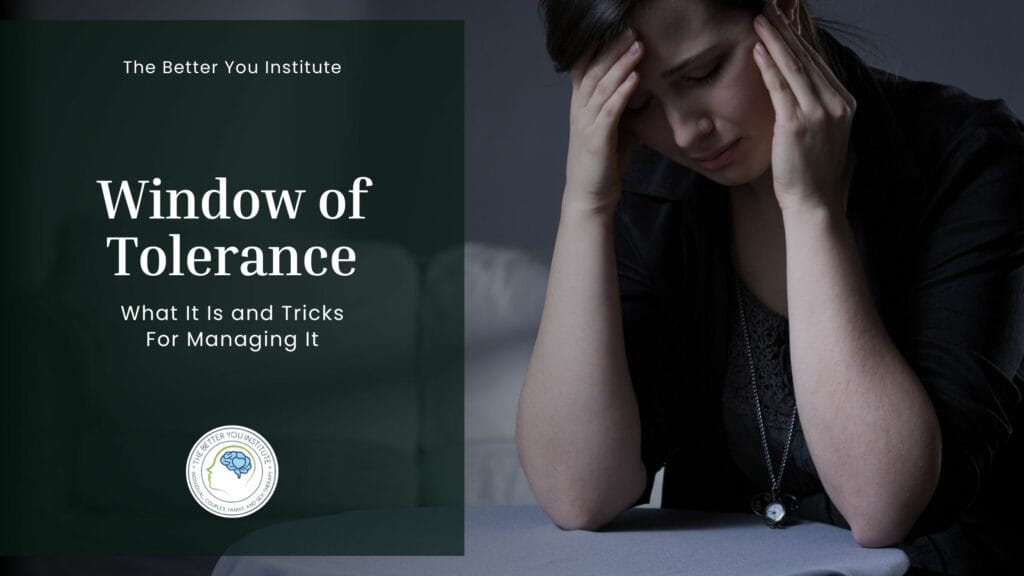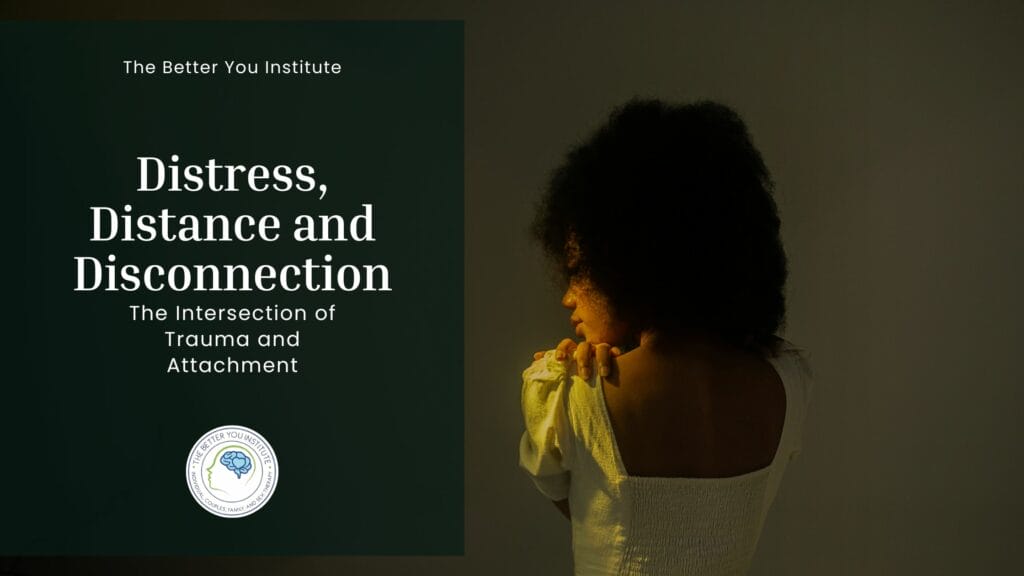What is the purpose of couples therapy?
In couples therapy, as opposed to individual therapy, the client is the relationship, not the individuals in the relationship. This allows the focus to be on the relationship as a whole and not the individual needs of the relationship’s members.
Couples therapy serves several purposes, including improving a couple’s communication, emotional and physical intimacy, trust, understanding, and problem-solving skills. It can also help couples navigate differences in sex, sexuality, values, expectations for the future, and life transitions. Lastly, couples therapy can also be for repairing relational mishaps, such as infidelity, neglect, substance use, financial issues, or the loss of a child. For many couples, it can be helpful to have an objective guide who can teach them new skills, model new ways to communicate, point out patterns, and propose new ways to look at things.
The therapist will also guide the couple in creating new experiences in the session when communicating, looking to solve a problem, or connecting deeper that they haven’t experienced at home. Ultimately, the purpose of couples therapy will vary per couple. However, there are some common expectations you can come into therapy having: learning about yourself and your partner(s) and how that impacts the relationship, emphasizing empathy, compassion, and understanding, and gaining a deeper connection to one another (even if you decide to break up), and learn how to disagree (not preventing it).
Table of Contents
What happens in a couples therapy session?
Couples therapy can look different depending on the model or theory the therapist is working from, but there are some general similarities in all approaches. Couples therapy will begin with the therapist taking a history of the couple, including their time together and their lives before meeting. While collecting this information, the therapist will also be working on developing the therapeutic relationship and needed rapport with the couple so that the couple feels comfortable, safe, and accepted to share openly and be vulnerable. During this history taking, the therapist might ask about familial relationships, past romantic relationships, major life events, sexual history, and plans for the future.
Next, the couple’s therapist will work with the couple to identify treatment goals. Frequently, couples will come in and be able to identify what the problem is but not what their goals are. For example, a couple may come in because they are having the same arguments repeatedly and they are tired of fighting. However, they cannot recognize that the associated goals would include learning effective communication skills and communication blockers, empathetic listening skills, engaging in perception shifts, and understanding the underlying patterns and beliefs missed when this cyclical fighting occurs.
Most forms of couples therapy will focus on communication and listening skills, though how they go about that will differ. Conflict resolution cannot occur until new ways of engaging, sharing, and listening are developed. Often, in conflicts, we are so focused on what it is we want to say we miss things being said to us; also, it is common for there to be a disconnect between what one partner is saying and what the other is hearing. In addition to the therapist aiding the couple in developing new communication and active listening skills, the therapist will also help the couple recognize when this communication disconnect is occurring, increase their awareness of the underlying thoughts and beliefs that contribute to this disconnect, and provide reframes to aid the couple in better understanding what is being said or not said.
Once couples have gained new communication and listening skills, the sessions will transition to focus on the individual needs of the couple. This could include problem-solving and conflict resolution, exploring relational dynamics, negotiating changes within the relationship, increasing trust, healing and repair, improving sexual and romantic intimacy, and sharing in a more intimate and vulnerable manner. Some therapists may request homework assignments to be done between sessions as a means to transition the therapeutic work outside of the therapy office.
Lastly, the couple will move into the maintenance phase of treatment. Or, they may identify new goals they want to work on and start the process over again. The maintenance phase means that the couple has reached their goals. In the maintenance phase, the therapist will explore with the couple the changes they’ve made and what might come up that could set them back or hinder their progress. The therapist will empower the couple to continue growing and learning beyond the therapeutic space. The couple will identify the new tools and skills they learned in therapy to get into the maintenance phase so that they can intentionally continue to use them.
Who is couples therapy for?
Contrary to what many think, couples therapy is for all couples, not just those experiencing difficulties. For some couples, participating in couples therapy can help them proactively strengthen the relationship and prevent minor issues from escalating into larger problems. Couples can engage in therapy at any relationship stage or during any transitional period. Some couples therapists are versed in different relationship needs, including those of the LGBTQIA* community, multicultural couples, those with blended families, or those needing support with specific concerns, whether it be co-parenting/parenting differences, sexual concerns, infidelity, kink/fetishes, or Ace-Allo/Ace-Aro identity differences. Couples therapy is also for those who don’t consider themself a couple. Maybe you’re in a throuple or the primary or metamour partner along with the secondary partner(s). However you define your relationship and your role in it, couples therapy can still be useful for you.
Things to Know About Couples Therapy
Couples therapists can have different qualifications. Some are Licensed Marriage and Family Therapists (LMFTs), some are Licensed Professional Counselors (LPCs), and some are Licensed Clinical Social Workers (LCSW). These licenses are based on what type of educational program the clinician attended and what their general background training is. You may also be able to work with an intern or pre-licensed clinician for couples therapy. These clinicians receive supervision from a more experienced, licensed therapist and can help guide your work. Many therapists, regardless of their licensure, obtain additional training in couples therapy, focusing on specific clinical techniques, communication skills, conflict resolution skills, and relational or system dynamics. Common additional training is under models such as Emotionally Focused Therapy, IMAGO, or the Gottman Method.
Couples therapy focuses on the relationship over the individual. While aspects of the individual will be explored, it will be looked at within the context of the relationship. The overall goals of couples therapy will be focused on improving the quality, health, and satisfaction of the relationship and not on individual personal growth (though that can happen as well). Sometimes, improving the quality, health, and satisfaction of the relationship means that the relationship dissolves and the couple breaks up. While having couples break up is not the therapist’s goal, it is their job to point out when it may be advantageous for a couple to explore separation.
Many couples therapists will ask to meet with the couple individually and jointly, though the frequency of the individual sessions will vary based on clinical determination of need. Many couples therapists have a “rule” of not keeping secrets that come up during individual sessions. Not keeping secrets means that information shared in the individual sessions that is important to the therapy work done in the conjoint sessions will not be withheld from the other partner(s). The therapist will work with the individual to get them in a place they feel comfortable sharing in the joint sessions. Exceptions to sharing this information are that sharing will be harmful or dangerous in some way.
An example of harmful or dangerous disclosures is when an extramarital affair is disclosed in an individual session. The therapist will support and aid the one having an affair in disclosing this to their partner in a conjoint session. However, an example of this disclosure possibly being harmful is if the infidelity happened twenty years ago during a partner’s fight with cancer. The infidelity seems to have no impact on the current issues the couple is having and would only further pain, shame, and guilt the cancer survivor partner.
Couples therapy is often scheduled on a weekly or bi-weekly basis, depending on the therapist’s professional opinion on the case. It can be short-term with a specific focus on resolving an identified issue or long-term with a focus on deeper-level relational work. Unless the couple came in to explore separation, it is often considered beneficial for the couple to commit to putting discussion of separation on hold at the beginning of couple work, with an understanding that the focus of therapy can transition to that focus later.
Couples therapy can be very beneficial, though no outcome can be guaranteed as it depends upon the severity of the issue and how both partners engage in the therapy process. Open and honest participation is necessary, as well as a commitment to the treatment goals and a willingness to change one’s thoughts, feelings, and behaviors to change things within the relationship.
The Benefits of Couples Therapy
Couples therapy can have multiple benefits. This includes improving communication and listening, increasing honest and open communication, increasing feelings of intimacy and trust, and providing couples with skills to manage conflict or problems when they arise. Couples can experience improvement in boundary making and respecting decision-making, negotiating differing needs and wants, conflict prevention, and alignment of parenting styles. By enhancing how they express empathy, compassion, validation, and perspective-taking, couples will have an easier time navigating cultural differences, rebuilding trust, increasing emotional connection, and building emotional and sexual intimacy. By creating healthier relational patterns, the individuals experience increased self-awareness and positive personal growth.
Types of Couples Therapy
Couples therapy works by changing how one participates within the relationship. In couples therapy, change can develop from looking at a few different things. One thing that can be helpful is examining how one thinks, feels, and behaves in general, as well as how one relates to others overall. Change can develop from reflecting on and changing how one communicates and responds to conflict, as well as the narrative each person holds about themselves, their partner(s), and the relationship. A couples therapist can also aid the couple in examining what each individual brings from past experiences into their current relationships.
Some examples of couples therapy models and methods include the following (though this is not an exhaustive list):
- The Gottman Method: a form of couples therapy created by Drs. John and Julie Gottman, focusing on communication skills and conflict resolution.
- IMAGO Relationship Therapy: a form of therapy that focuses on unconscious idealized love, relationship patterns, communication, and resolving past “wounds.”
- Emotionally-Focused Therapy: a structured approach that focuses on emotions and attachment to allow for corrective emotional experiences and deeper emotional connections.
- Narrative Therapy: couples will examine how their inner narrative/stories affect their perceptions and direct the way they interact with their partner(s), allowing them the opportunity to rewrite the narrative more positively.
- Attachment-Focused Therapy: this looks at attachment styles, reframing behaviors within the context of attempting to get one’s needs met, and supporting the couple as they move from insecure to secure attachment styles
- Cognitive-behavioral couples Therapy: a therapy that looks at the connection between thoughts, feelings, and behaviors, believing that by changing one, the other two will also change.
- Sex Therapy: couples therapy that focuses on sex and sexuality concerns within the relationship, utilizing a view that sexual concerns are an issue of the couple as a whole and not the individual
- Solution-Focused: this is usually a short-term therapy approach that takes a structured and direct approach to finding solutions to current problems without expanding focus into an individual’s past or other areas of the relationship.
- Family Systems Therapy: looks at the family and systems each person comes from and the influences past family dynamics have on how the individual engages in relationships.
- Relational Life Therapy: an approach developed by Terry Real, that examines relationship patterns and concerns as they relate to early attachment and cultural influences, as well as the impact past relationships have on current ones.
- Integrative Couples Therapy: an approach to therapy that incorporates multiple approaches of couples therapy to personalize treatment to the specific needs of each couple.
- Esther Perel’s approach: her approach focuses on the interconnection, interplay, and, at times, conflicting needs between intimacy and desire; couples will explore topics related to communication, connection, trust, and compatibility.
No one method of couples therapy has been shown in the research to be “better” than any other. However, some of the models listed above have more research behind them. The Gottman’s, for example, have made it their life’s work and have put out world-renowned research. Sue Johnson (Emotionally-Focused Therapy) and Terry Real are leaders in couples therapy. Each method works to increase awareness and insight and create changes in how one relates interpersonally.
Why might a couples therapist recommend individual therapy first?
There are many reasons a couples therapist may recommend each member attend individual therapy first, and that is not a reflection of the state of the relationship or the ability for the relationship to be worked on. There may be some individual things that the therapist believes would benefit the individual to work on independently, which can also result in an improvement in the relationship. Examples of this would include when one member of the couple is experiencing depression, anxiety, low self-esteem, or difficulty regulating emotions. It would also be recommended for when one of the individuals wants to work on areas of personal growth and goals outside of the relationship. A therapist may also suggest this when one member of the relationship is experiencing unresolved grief or trauma, as individual therapy would allow more time and space to be focused on healing these wounds.
If there is a safety-related concern, the therapist may recommend individual therapy first. If the therapist has concerns regarding the emotional or physical safety of any relationship member, the couple will be referred separately for individual therapy before beginning couples therapy. Couples therapy cannot be effective when the therapy or home space is unsafe. Couples therapy is also not effective if there is current infidelity happening. Related to safety, this does not create emotional safety for the non-cheating partner. Ongoing infidelity also takes up some of the energy and motivation of the cheating partner that is needed to work on the primary relationship.
Why do I feel so scared or intimidated when I think about being in couples therapy?
Therapy can feel intimidating, whether individual, family, group, or couples therapy. It is reasonable for people to be scared to confront their past, face difficult issues, or accept the need to make change. In fact, by agreeing to therapy, one is automatically agreeing to reflect, confront, and make a decision to change or not. It can be scary to open oneself up to a stranger, especially when the outcome of it is unknown. The whole process can feel very vulnerable, which for many is naturally a fearful thing.
For many people, they experience a fear of being judged, a fear of change, a fear of both failure and success and a fear of having to confront the things that make them unhappy. Many people have internalized shame and stigma about being in therapy and what being in couples therapy means for the relationship. People also have a fear of the vulnerability that arises in therapy, as well as a fear of being rejected if they allow themselves to be vulnerable, authentic, and open.
These fears are all valid and reasonable. It is important to remember that these same fears can underlie some of the relational issues that result in seeking couples therapy. By engaging in couples therapy, even when intimidated and fearful of it, the couple is opening themselves up to change.
In couples therapy, all of these experiences feel magnified because you are not just in the presence of a therapist but also being witnessed in them by your partner(s). At first, this idea of sharing such vulnerabilities and being so honest and real in the sessions may seem scary. However, the idea of couples therapy is to get vulnerable with your partner(s) in hopes of joining you together and creating a deeper connection.
Concluding Thoughts
Couples therapy does not need to be viewed as something to avoid, nor does it imply that the relationship is failing. While couples therapy can help when larger problems have already arisen within the relationship, it can also help prevent some of the larger problems from developing. Couples therapy can provide the tools couples need to weather problems if/when they arise in the future.







